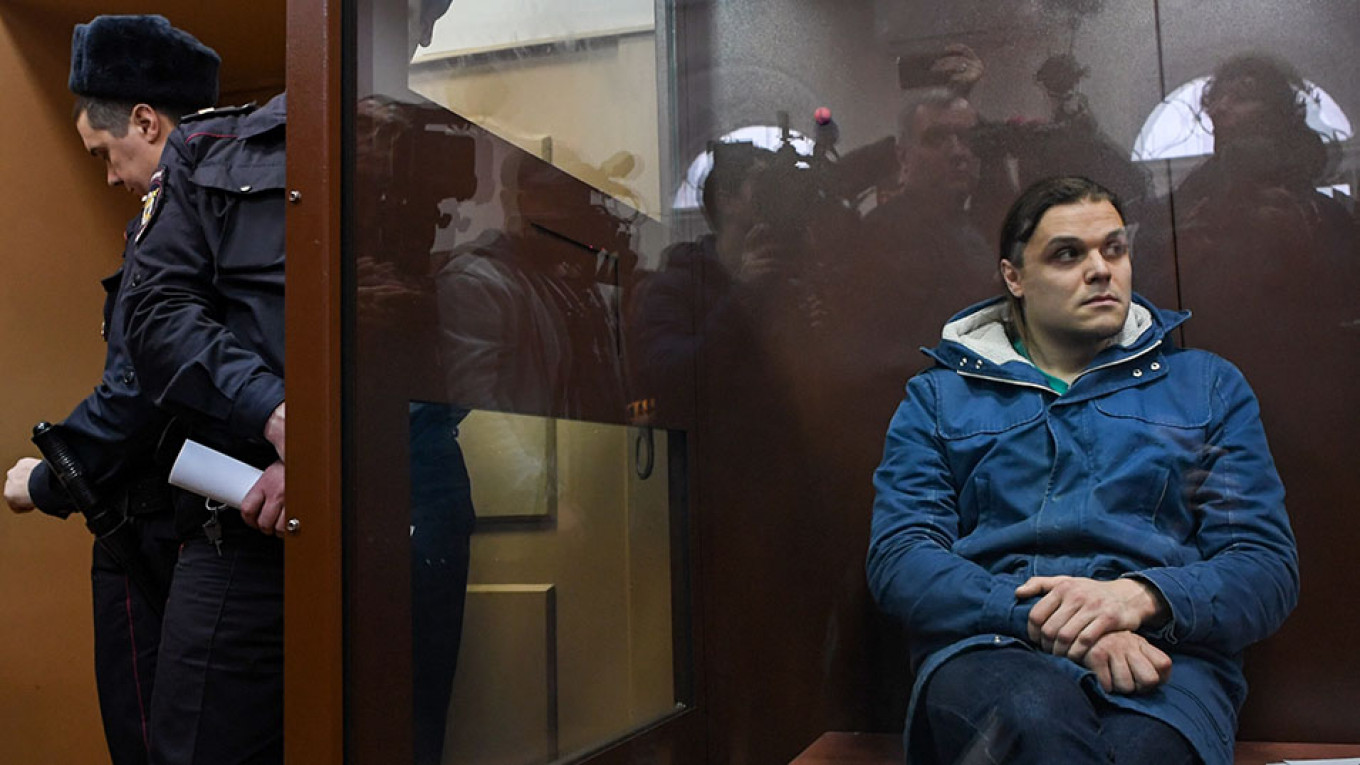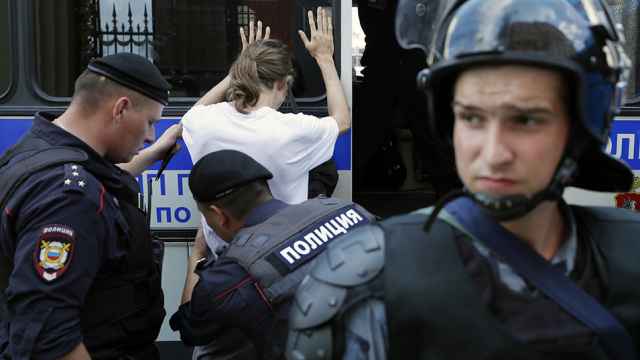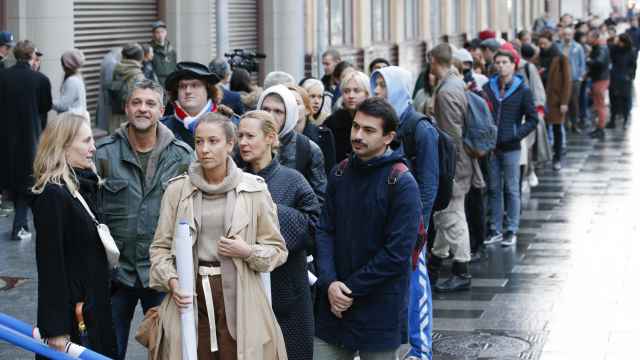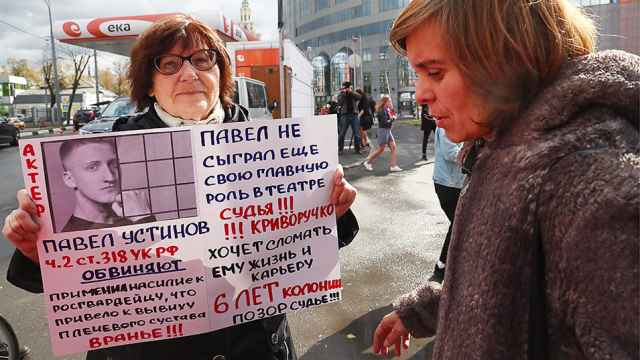A Moscow court on Friday placed a new protester under arrest until Jan. 27 on suspicion of assaulting police at this summer’s anti-government rallies, the latest prosecution under the so-called “Moscow Case.”
Russians took to the streets nearly every weekend this summer after a slew of opposition politicians were barred from taking part in Moscow’s local election. Thousands were briefly detained and dozens arrested on criminal charges at the rallies, which grew into the biggest sustained protest movement in the Russian capital in years.
The “Moscow Case” has sparked strong public outcry, with critics calling the protesters’ prosecutions unjustified and decrying what they say are disproportionately harsh prison sentences.
A total of 29 people have at one point been prosecuted under the so-called Moscow case. Seven people have been convicted and 15 others remain under investigation.
Here’s what we know about the new defendants. Click here and here for past updates.
Eduard Malyshevsky, 47, detained Aug. 30, faces up to five years on suspicion of assaulting a police officer after kicking a police bus window. Malyshevsky is a repairman.
Sergei Surovtsev, 30, faces up to five years on suspicion of assaulting a police officer after being filmed pushing a crowd-control fence. Surovtsev is a software engineer.
“There’s likely to be more arrests” because other protesters were filmed holding the fence, the Open Media news website quoted Surovtsev’s lawyer Vasily Kushnir as saying Thursday.
These are the defendants who have since been released:
Alexei Minyaylo.
Vladislav Barabanov.
Sergei Abanichev.
Daniil Konon.
Dmitry Vasilyev.
Valery Kostenok.
*Aidar Gubaidullin was released, then charged with a second criminal offense of assaulting police. A court placed him under arrest in absentia after he fled to Lithuania in October.
Trials and preliminary hearings are meanwhile in full swing for protesters still facing charges, including Malyshevsky.
A Message from The Moscow Times:
Dear readers,
We are facing unprecedented challenges. Russia's Prosecutor General's Office has designated The Moscow Times as an "undesirable" organization, criminalizing our work and putting our staff at risk of prosecution. This follows our earlier unjust labeling as a "foreign agent."
These actions are direct attempts to silence independent journalism in Russia. The authorities claim our work "discredits the decisions of the Russian leadership." We see things differently: we strive to provide accurate, unbiased reporting on Russia.
We, the journalists of The Moscow Times, refuse to be silenced. But to continue our work, we need your help.
Your support, no matter how small, makes a world of difference. If you can, please support us monthly starting from just $2. It's quick to set up, and every contribution makes a significant impact.
By supporting The Moscow Times, you're defending open, independent journalism in the face of repression. Thank you for standing with us.
Remind me later.






